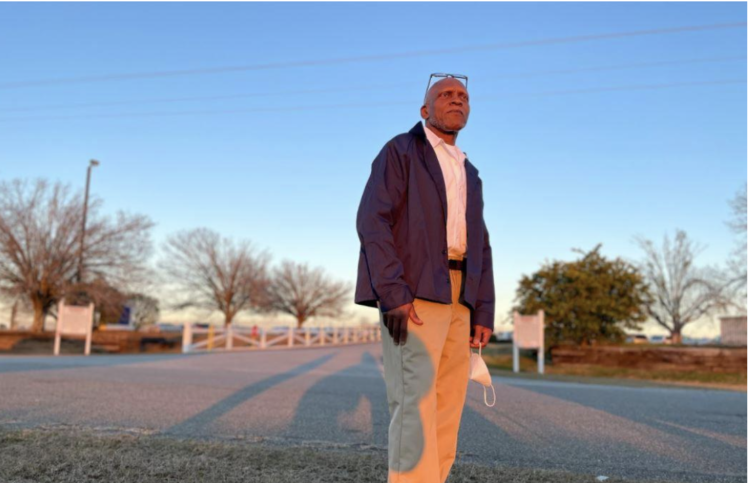After spending 40 years behind bars for a crime he didn’t commit, a Georgia man is a free man. The Georgia Innocence Project helped Terry Talley win back his freedom and his life.
On Feb. 23, Talley left the walls of Dooly State Prison. The newly-liberated man described walking out the prison gates as a “blessing.”
“Today is such a blessing.” TalleWords can’t describe how it feels to finally be free after all these years, Terry said. “I’m so thankful for my family, who kept me going all this time, and for the Georgia Innocence Project, who never gave up.”
Out of the five cases, Talley was acquitted in four. The last case is currently under review. In 1981, he was sentenced to life in prison.
Between February and June 1981, an array of sexually violent assaults happened in LaGrange, Georgia, near LaGrange College. The Georgia Innocence Project reported five women– four white and one Black– were allegedly attacked by a Black man, according to LaGrange police.
Ironically, the attacks occurred while police were investigating complaints on a Black male city worker accused of exhibiting threatening behavior on the campus.
During the police investigation of the sexual attacks, police maintained they found a pair of gloves where one of the assaults took place. They reportedly determined that the gloves belonged to the problematic city employee, who was later terminated.
Talley’s alleged involvement stemmed from an arrest for solicitation in July 1980. Police claimed Talley strong-armed the woman as he spoke with her prompting him to be detained for simple battery. Once he was in custody, police added the man to picture and live lineups regarding the LaGrange attacks. Although the victims and witnesses had previously identified a suspect, Talley was later named as the perpetrator.
Attorneys for Talley were never informed that he’d been included in lineups– let alone identified as the suspect for the sexual assaults. Police penned the attacks on Talley, charging him with solicitation and sexual assault.

The Georgia man proclaimed his innocence, but that didn’t stop a jury from finding him guilty and sentencing him to life in prison during the one-day trial on April 19, 1981. Prosecutors in the case got the guilty verdict based on a victim who could not identify Talley. The Georgia Innocence Project would later discover that police suppressed evidence, including the victim’s blood alcohol reading of .34 when the attack occurred. A different man altogether had been named the suspect.
His next trial was more of the same– rushed and not thorough, yielding the same punishment– life in prison.
Talley eventually pled guilty in the remaining three cases.
Had it not been for the Georgia Innocence Project’s request to use Talley’s DNA to eliminate him as the perpetrator in 2008, he would still be incarcerated.
DNA testing proved his innocence– one year later, but only for one of the 1981 cases. A Troup County magistrate overturned that decision in 2013, but the indictments for the remaining four other cases stayed intact.
Related Story: Ex-Felon Opens First-Ever Black-Owned Barbershop Inside a Walmart
Finally, after several years, the project and the LaGrange police investigations brought the case in front of the Coweta Judicial Circuit District Attorney Herb Cranford, who dropped four more cases.
Georgia Innocence Project Director Clare Gilbert wasn’t surprised that an innocent Black man was convicted of a crime he didn’t commit.
“We know that misidentifications, like those of Terry Talley, are a leading contributor to wrongful convictions.”
“Mr. Talley’s exonerations demonstrate the urgent need to reevaluate these eyewitness identification cases and their scientific bases. We hope that Terry’s story encourages other Georgia officials to strive to correct and prevent wrongful convictions in their jurisdictions,” she said.
Managing attorney for the project, Jennifer Whitfield, vowed to see Talley’s convictions were cleared, and his freedom remained intact– until the end.
“Terry’s freedom is far too long overdue, but we are grateful that the LaGrange Police Department and District Attorney Cranford had the courage to take a hard look at the lack of evidence against him and act to try to right these historical wrongs,” she expressed. “Our fight for justice for Terry will continue until the last two cases are resolved.”















